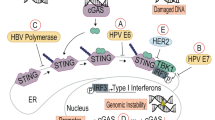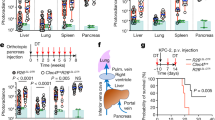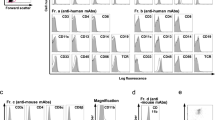Abstract
Silica specifically kills macrophages in vitro, and in vivo has been used as a method of determining the possible immunological or other roles of macrophages in a number of viral infections. In experiments reported here, injection of 30 or 50 mg silica i.p. increased the severity of the oncogenic effects of the murine sarcoma virus (MSV) and Friend virus (FV) in BALB/c mice. Unlike Herpes simplex and Coxsackie B-3 infections, however, passive transfer of adult macrophages to suckling mice did not protect the latter against MSV. In mice injected with silica, histological evidence of the compensatory proliferation of macrophages suggests that precursors of these cells may act as target cells for the virus and that this may override any immunosuppressive response effected by the silica. In addition, there was a considerable enhancing effect on the erythroproliferative response to both MSV and FV by injection of saline 5 h before the virus, and indeed to FV after only a simple abdominal needle puncture. We attributed this to the lymphopenic immunodepressive effects of stress, and our data may explain previously published findings of augmented oncogenic responses in mice after "normal" serum injections. Newborn BALB/c (FV-1b) mice were susceptible to N-tropic FV, but developed resistance by 29 days of age. Antithymocyte serum (ATS) but not silica injections or adult thymectomy ablated this resistance. C57BL (FV-2r) mice were completely resistant to FV, however, those receiving FV and ATS developed late-onset leukaemia histologically characteristic of that produced by the helper component of the FV complex.
This is a preview of subscription content, access via your institution
Access options
Subscribe to this journal
Receive 24 print issues and online access
$259.00 per year
only $10.79 per issue
Buy this article
- Purchase on Springer Link
- Instant access to full article PDF
Prices may be subject to local taxes which are calculated during checkout
Similar content being viewed by others
Rights and permissions
About this article
Cite this article
Harvey, J., Rager-Zisman, B., Wheelock, E. et al. Factors affecting responses to murine oncogenic viral infections. Br J Cancer 41, 577–586 (1980). https://doi.org/10.1038/bjc.1980.100
Issue Date:
DOI: https://doi.org/10.1038/bjc.1980.100



